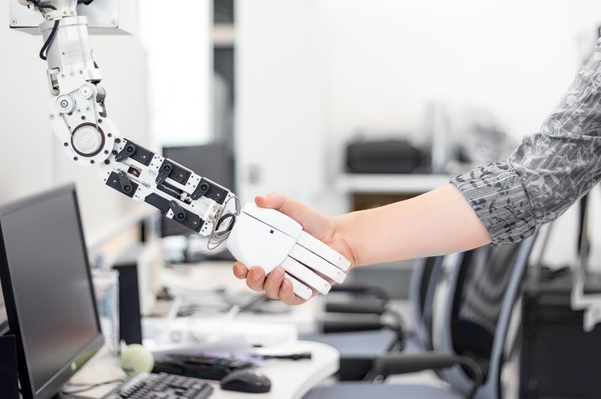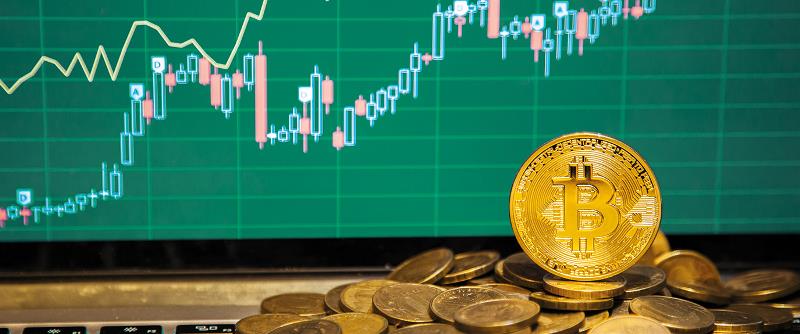Just how secure is bitcoin?
Bitcoin has enjoyed a startling rise in value since it first appeared in 2009. Then it was valued at $0.5cents. It hit a high of just above $18,000 per coin in December 2017, but it is highly volatile and fell by more than $4,000 in one week.
Supporters argue bitcoin is a transformative technology that allows money to be transferred without costs between borders. The technology that underpins it, blockchain, makes transactions easy to trace, so decreasing the risks of theft, while avoiding the need for a central banking authority, they say.
But is it time for global markets watchdogs to ask how safe such virtual money is?
Because despite many positives, the risks are many, and include regulatory shortcomings and cyber fraud. Some experts warn they could even trigger a global financial crisis.
Regulation v reward
Cryptocurrencies are neither a commodity nor a currency. They are not something you can trade, like orange juice or beans, or a fiat currency – issued, controlled and exchanged by central banks.
As a result, their place in the regulatory environment is ambiguous and, unlike other investments, e-currencies are not covered by regulators in the case of financial losses.
Despite this, businesses have attempted to raise funds for projects using “initial coin offerings” or ICOs. These are supposed to operate like company share sales, but some have been controversial.
But the divergent views of e-currencies in different territories is marked. ICOs have been banned in China and South Korea, while Jamaica hopes to actively exploit the technology.
ICOs and class actions
Centra, a company looking to build a digital credit card platform and work with established lenders Visa and Mastercard, raised between $30 million-$50 million in 2017. It was subsequently accused of “offering and selling unregistered securities” in a class action, while New York Times reported no deals with either card lender had been struck.
Meanwhile, Tezos, which raised over $230 million to create a “digital commonwealth” has been hit by several class actions, one of which accuses its founders of “capitalizing on the recent enthusiasm for blockchain technology” to sell “unqualified and unregistered securities” and of trying to “evade US securities laws”.
The US, the Securities and Exchange Commission warned ordinary investors to be wary of ICOs, telling professionals that even if a corporate fundraising involves new technology, “any such activity that involves an offering of securities must be accompanied by the important disclosures, processes and other investor protections that our securities laws require”.
The SCE shutdown one ICO, which has returned $15 million to its backers after the regulator said that it was in effect trading securities.
The European Securities and Markets Authority has warned “ICOs are … vulnerable to the risk of fraud or money laundering” and “firms involved in ICOs should give careful consideration as to whether their activities constitute regulated activities”.
Source: Shutterstock
Old fraud, new fraud
The high valuation of cryptocurrencies is attracting a variety of scammers.
These range from traditional Ponzi or pyramid schemes – where mature investors earn rewards effectively that are generated by new investors joining – to phishing scams attracting would be backers to fake trading sites.
Additionally, malicious software planted on traders’ computers can divert investments from legitimate accounts to the online wallets of criminals. One of these “trojans” alone, CryptoShuffler, is said to have made more than $150,000, by copying anything like looks like a bitcoin ID string when it is cut and pasted in an infected computer.
Advice from experts to potential investors includes being wary of websites offering sky-high returns to keeping passwords and online IDs in safe places, such as USB drives, unconnected to the internet. Meanwhile companies or the extremely wealthy could hire specialised cryptographers.
Too big to fail?
Despite reservations, US markets watchdog the Commodity Futures Trading Commission has allowed financial exchanges CME and CBOE to trade futures contracts – bets based on how much bitcoin will be worth at given dates.
Early trading was subdued, but the move has sparked warnings that betting on bitcoin futures could fuel another financial crisis, similar to the 2008 crash, which was partly triggered by large amounts of money being speculated on financial products called collateralized debt obligations.
These were linked to the values of mortgage loans, but their buyers did not own any of the underlying properties. When the US property market crashed, the value of CDOs plummeted.
If too many people borrow money to finance their purchase of bitcoins, or bet on their value via financial instruments like futures, then some experts warn they could pose a threat to the real global economy.
A lurking spectre
Others argue that the bitcoin market is not yet developed enough to pose a systemic threat and say blockchain has the power to improve planning in financial markets by speeding up transactions and making back-office tasks easier.
But the lurking spectre of cyberattacks and criminality continues to hang over the e-currencies.
The collapse of bitcoin company Mt Gox in 2014 after 850,000 Bitcoins were stolen, and the more recent theft of nearly $64 million by cyber criminals who broke into Slovenian bitcoin marketplace NiceHash in December, underscore warnings that even apparently secure and legitimate exchanges are risky places for online investors.
This, combined with the risk of a global financial meltdown if the marketplace becomes too big, is surely a warning sign that global regulators need to act on digital currencies sooner rather than later – and watchdogs in the US and Europe are already making sounds that they will act.


